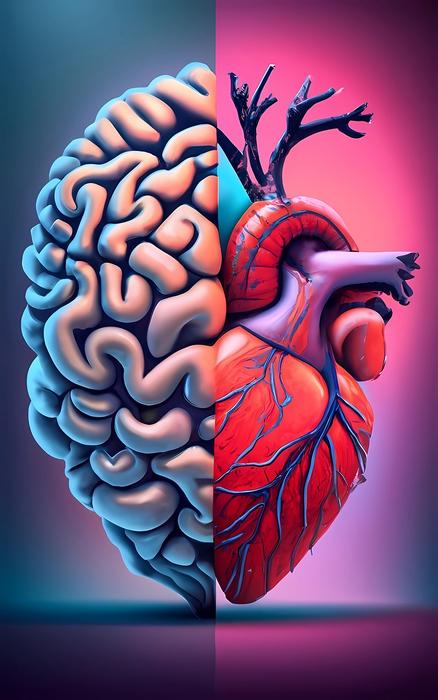Optimal windows exist for action and perception during the 0.8 seconds of a heartbeat, according to research published November 28th in the open access journal PLOS Biology. The sequence of contraction and relaxation is linked to changes in the motor system and its ability to respond to stimulation, and this could have implications for treatments for depression and stroke that excite nerve cells.

Credit: Mohamed Ben Ammar, Pixabay (CC0, https://creativecommons.org/publicdomain/zero/1.0/deed.en)
Optimal windows exist for action and perception during the 0.8 seconds of a heartbeat, according to research published November 28th in the open access journal PLOS Biology. The sequence of contraction and relaxation is linked to changes in the motor system and its ability to respond to stimulation, and this could have implications for treatments for depression and stroke that excite nerve cells.
The ways in which we perceive and engage with the world are influenced by internal bodily processes such as heartbeats, respiration and digestion. Cardiac activity can influence auditory and visual perception, and touch and sensory perceptions have been shown to be impaired during the systolic phase of the cardiac cycle when blood vessels are briefly distended.
Esra Al of the Max Planck Institute for Human Cognitive and Brain Sciences, Germany, and colleagues, wanted to understand whether there were changes in cortical and corticospinal excitability — the ability to respond to stimuli — across the cardiac cycle. 37 healthy human volunteers aged between 18 and 40 years received a series of transcranial magnetic stimulation (TMS) pulses — non-invasive short magnetic pulses that stimulate nerve cells — above the right side of the brain.
Motor and cortical responses as well as heartbeats were measured during the pulses and the authors found that higher excitability was recorded during the systolic phase. These simultaneous recordings of brain activity, heart activity, and muscle activity, suggest the timing of heartbeats and their neural processing are linked to changes in the excitability of the motor system.
TMS is used in treatments for depression and recovery after stroke. The research raises questions about whether these could be fine-tuned to improve results, as well as contributing to a greater understanding of brain-body interactions in health and in disease.
The authors add, “Intriguingly, this study uncovers a remarkable connection between the human heart and brain, revealing distinct time windows tailored for action and perception.”
#####
In your coverage, please use this URL to provide access to the freely available paper in PLOS Biology: http://journals.plos.org/plosbiology/article?id=10.1371/journal.pbio.3002393
Citation: Al E, Stephani T, Engelhardt M, Haegens S, Villringer A, Nikulin VV (2023) Cardiac activity impacts cortical motor excitability. PLoS Biol 21(11): e3002393. https://doi.org/10.1371/journal.pbio.3002393
Author Countries: United States, Germany, the Netherlands
Funding: For this project, EA received funding from the Max Planck School of Cognition, Walter Benjamin Program of the German Research Foundation (DFG) and the experiment was funded by the Max Planck Society. The funders had no role in study design, data collection and analysis, decision to publish, or preparation of the manuscript.
Journal
PLoS Biology
DOI
10.1371/journal.pbio.3002393
Method of Research
Experimental study
Subject of Research
People
COI Statement
Competing interests: The authors have declared that no competing interests exist.




